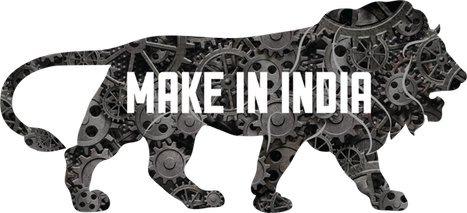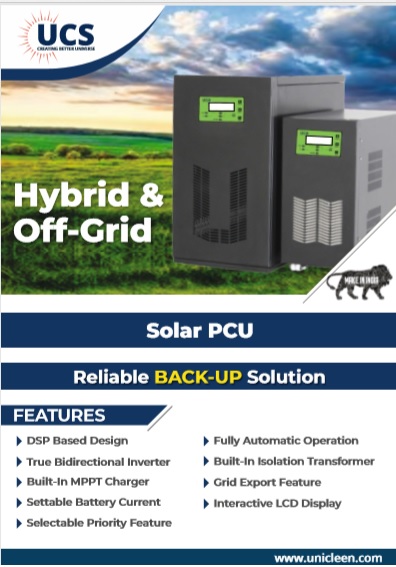Hybrid And Off-Grid Solar PCU
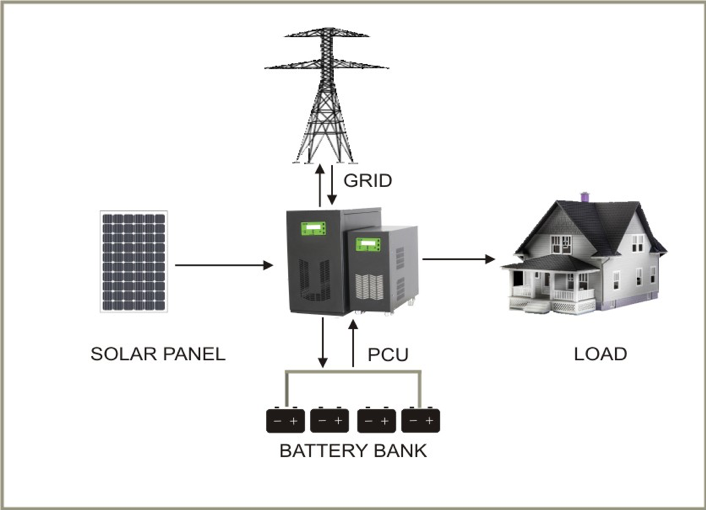
Features of Hybrid & Off-Grid
1. DSP Based Design2. True Bidirectional Inverter
3. Built-In MPPT Charger
4. Settable Battery Current
5. Selectable Priority Feature
6. Fully Automatic Operation
7. Built-In Isolation Transformer
8. Grid Export Feature
9. Interactive LCD Display
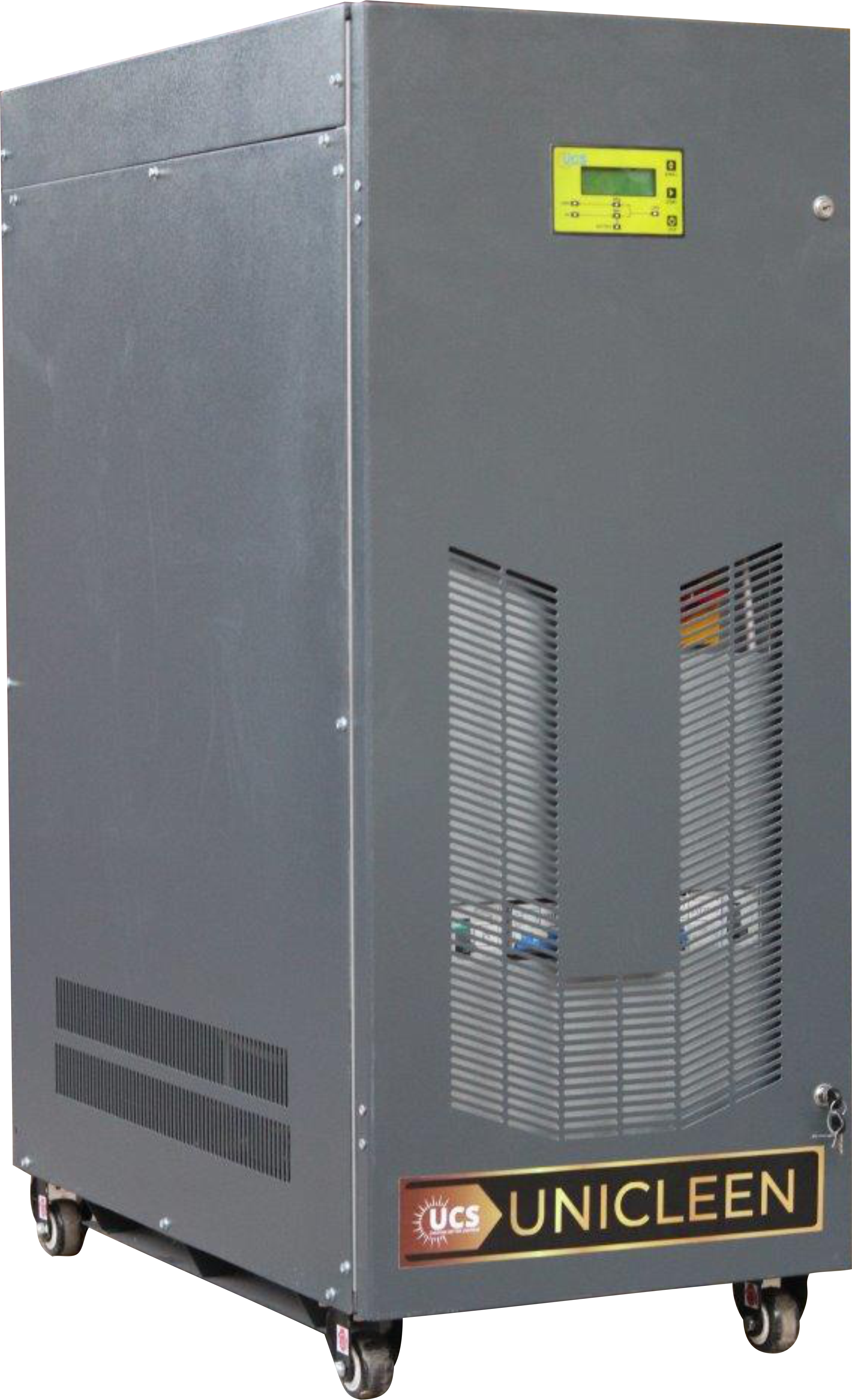
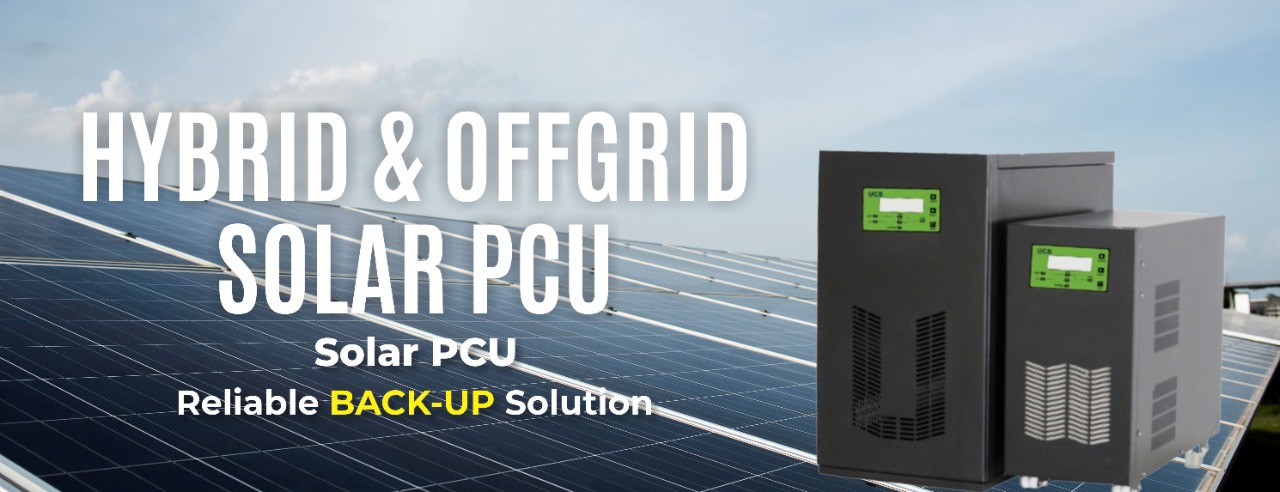
Hybrid And Off-Grid Solar PCU
Hybrid PCU
A Hybrid Solar PCU, Inverter main job is to convert DC power generated from the array into usable AC power. Hybrid inverters go a step further and work with batteries to store excess power also . this sort of Solar system solves issues renewable energy variability and unreliable grid structures.
Inverters for grid-tied applications can only provide power supported what the array can immediately generate from the sun. “Hybrid PCU Inverters can store power in batteries then drawn upon it as required for energy stabilization.”
Hybrid inverters can vary in size, performance and features. But most models usually operate bi-directionally, meaning they will convert DC power from modules to usable AC power then convert stored AC from the batteries to power loads when needed. Hybrids also can remain grid-connected and use a mixture of renewable and non-renewable energy to charge batteries and offset loads.
Some contractors have used hybrid inverters within the residential, remote home applications for the past decade or two. But the range of applications has expanded over the past few years to incorporate large capacity microgrids also as grid-connected systems.
Off-Grid PCU
An Off-Grid Solar PCU system is not connected to the electricity grid and therefore requires battery storage. An off-grid solar PCU must be designed appropriately so that it will generate enough power throughout the year and have enough battery capacity to meet the home’s requirements, even in the depths of winter when there is less sunlight. The high cost of Solar off-Grid PCU and inverters means off-grid systems are much more expensive than on-grid systems and so are usually only needed in more remote areas that are far from any electricity Off-grid.
These are ideal for remote areas where there is no power access from the Off-grid PCU. Grid failures and shutdowns will not affect your power supply. An off-grid solar PCU system is more popular and comes with a power backup. It works independently of the Grid Inverter. Most home appliances such as Fans, TV, Cooler, AC, Water Pump etc. can work through this system. For instance, a 1 kW off-grid solar system is sufficient for a 2-4 BHK house. But if you also want to run 1HP Water Pump in your home you could use a 3 kW off-grid solar system. If you are planning to run an AC then you should use a 5 kW system. For commercial setups like a shop, clinic or small mill, petrol pump a 10 kW off-grid solar system should be used.
Hybrid Solar Inverters
Common hybrid solar inverters also referred to as multi-mode inverters are at the guts of any simple, cost-effective home battery storage system. Hybrid inverters are essentially a solar inverter combined with A battery inverter/charger. These modern inverters use energy meters and clever software which may be programmed to work out the foremost efficient use of your available energy.
Home battery and off-grid energy storage systems are often divided into the four categories below:
- Off-grid and Hybrid Multi-mode Inverters
- All-in-one Battery Energy Storage system BESS
- Hybrid solar inverters
- Battery systems – energy storage
Follow
Facebook: https://www.facebook.com/unicleen/
Twitter: https://twitter.com/unicleen

